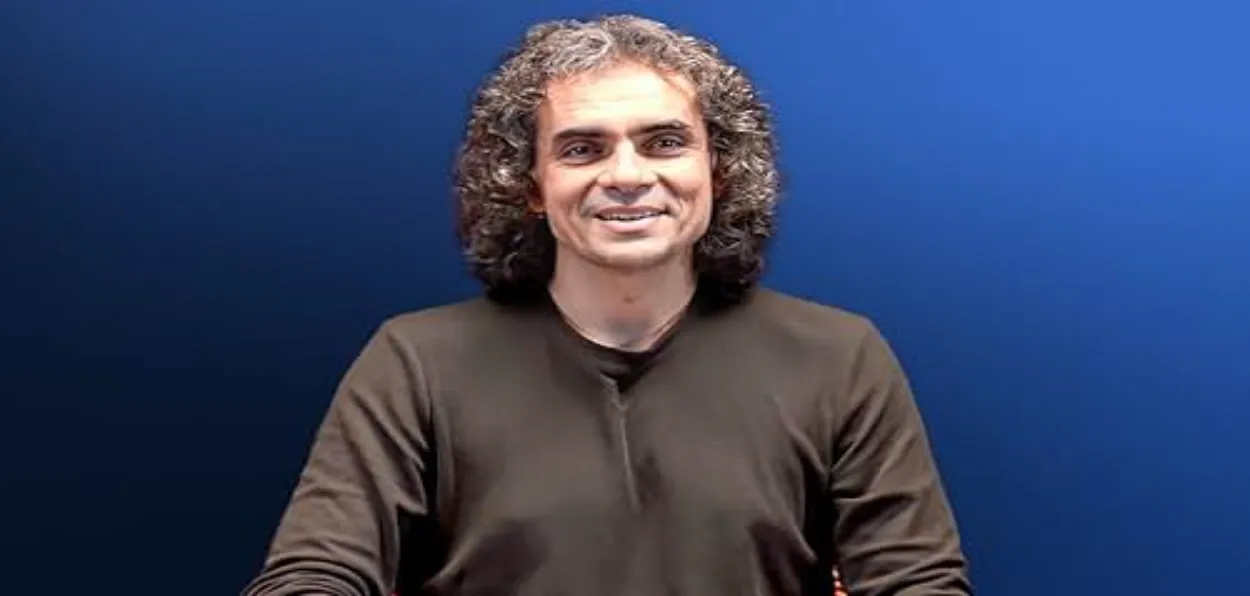
Rana Siddiqui Zaman
While International Gita Mahotsav is being celebrated at Kurukshetra, Haryana, eminent Bollywood film director, and writer Imtiaz Ali speaks of his life-changing experience of reading the Hindu sacred book that imbibes practical, psychological, philosophical, and spiritual values.
interestingly Imtiaz, an Arabic word means eminence, honour or highly distinctive merit is quite synonymous with the filmmaker for being highly intellectual, gifted, composed, and mystical.
Even as he should be basking under the glory of his latest success Amar Singh Chamkila featuring Actor Singer Diljit Doshanj and Pasrineeti Chopra with music of A R Rahman, Ali appears calm by demeanor and defines the world like he is always on a spiritual journey.
“A great change came in my life when my father decided I should learn to travel alone by train. I was just 13 then. He gave me some money for it and let me be on my own. This changed my life forever.”
No wonder this avid traveler speaks about his inclination towards Bhagwad Gita, a sacred book based on Krishna’s sermon to Arjun at the outset of the war of Mahabharata; of the diverse cultural milieu he was reared up among people of dfferent faiths in the Hindi film industry.
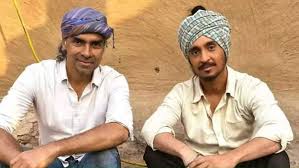 Imtiaz Ali with Diljit Doshanj on the sets of Amar Singh Chamkila
Imtiaz Ali with Diljit Doshanj on the sets of Amar Singh Chamkila
How a quick visit to a book stall where he bought Bhagwad Gita changed his life forever, is an interesting incident he recalls fondly.
“To impress myself or perhaps others, en-route my travel one day, I bought a book from an A H Wheeler on a railway platform. It was the only book I could afford with that money. The book was a thin one - Bhakti Vedanta’s Bhagwad Gita. I started reading it every day religiously. And trust me, this book was on my bedside table for decades. I would read a few passages from it every night and fall into a smooth, deep sleep afterward. It was my routine for years to come. I still remember how calm that sleep used to be. I can certainly say that the book had a deep impact on my thinking; it shaped my philosophy of life and my spirituality in certain ways.”
Jamshedpur’s cultural milieu
When asked how he is so tranquil in a world always rushing to meet deadlines and quite chaotic, he says, “I owe my calmness to the atmosphere I lived in. It was a colony in Steel City Jamshedpur called Flour Mill Road. Our neighbourhood included families from Bihar, Odisha, West Bengal, and a Parsee family. It was such a mix of cultures that I saw in one place. I was constantly exposed to their language, dialect, mannerisms, food, culture, and so on. And I was a sharp observer, learning all the time. It was my comfort zone. I used to behave very well with elders, hence was loved and pampered a lot.”
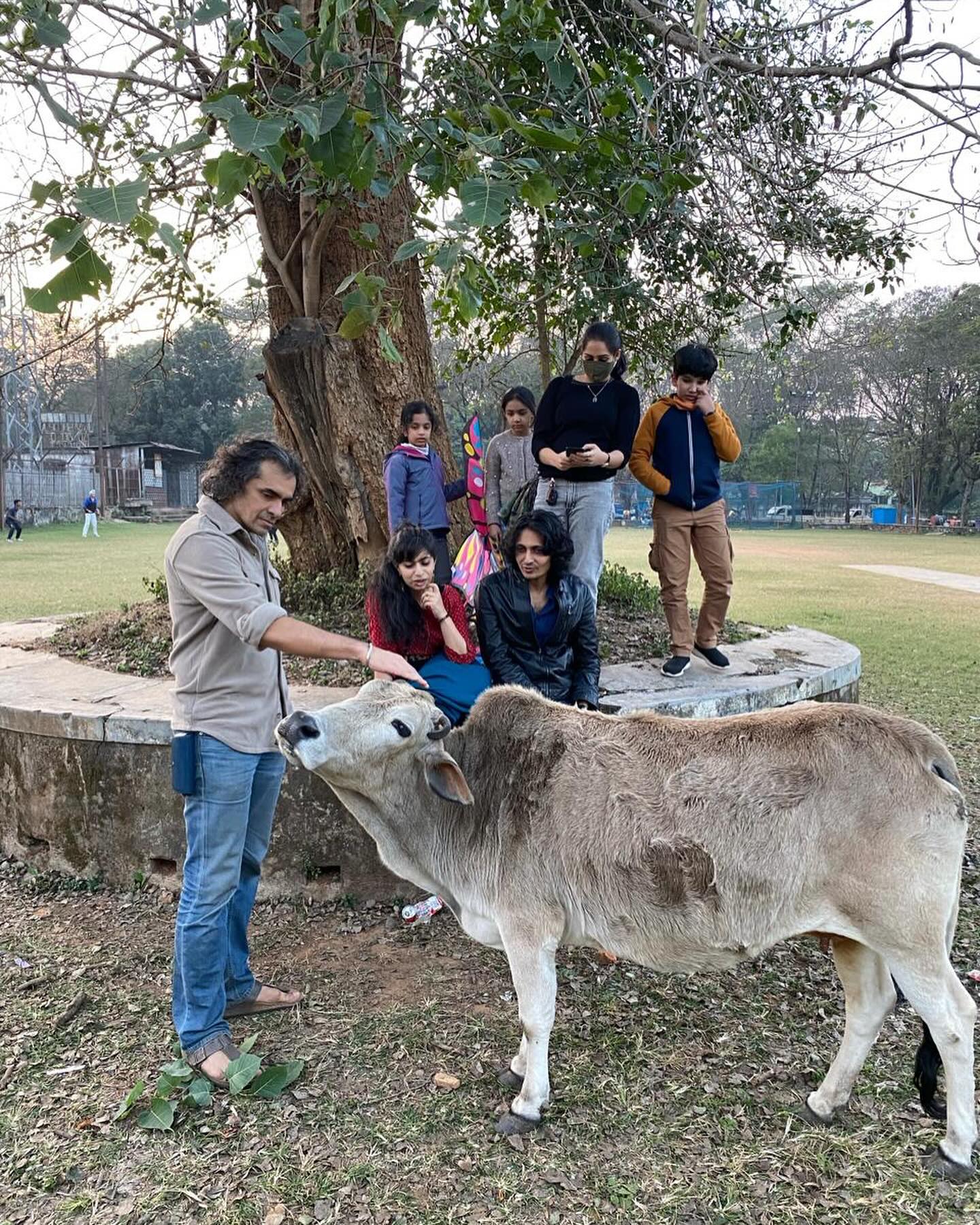 Imtiaz Ali in a park in Jamshedpur
Imtiaz Ali in a park in Jamshedpur
His maternal great-grandfather was a huge influence too. “We used to live in our maternal great-grandfather Hameed Hasansahab, who was a communist by ideology, secular and a great scholar of his time whom people around used to respect a lot and give examples of his kindness, piety, and knowledge. I was his favourite child at home I used to watch how he talked, taught, and behaved with people around. So he had a great influence on me. I think my childhood was shaped by these beautiful neighbours, the freedom of living in a cosmopolitan city, my parents, siblings, and “daadu”.
Love and Ali
Ali has been in the film industry for over 30 years, making films that bespeak love in its different forms, from conscious to unconscious, to reaching its heights in physical and spiritual, to quote Rumi, “I shall meet you beyond the right and the wrong” in Rockstar for instance.
If his very first Socha Na thaa, was about love slowly creeping into the characters like a feeling, in Jab We Met, it is the realisation of what love is; care and selflessness, asilent admiration and efforts to bring someone out of distress caused by a selfish association being understood as love, in Love Aaj Kal part one and two, it is about love never dying even in disloyalty and a quest for it through how sufis and fakirs like Rumi, Bulle Shah, Nanak and Kabeer have defined it; it is in deep connection with self, Almighty and someone who shares the same heart patterns about it. Imtiaz has explored it all.
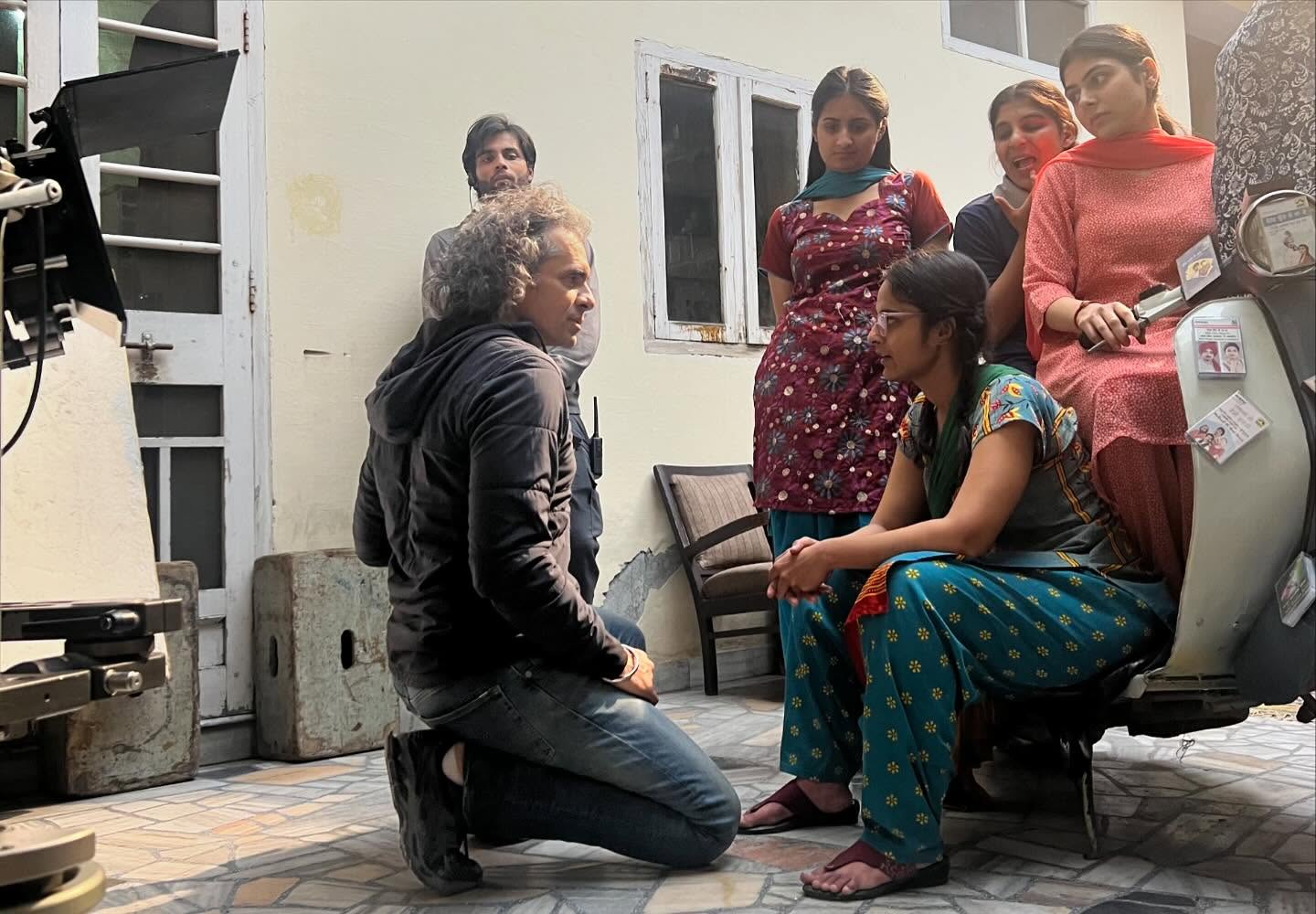 Imtiaz Ali with artists on the sets of Amar Singh Chamkila in Punjab
Imtiaz Ali with artists on the sets of Amar Singh Chamkila in Punjab
In an industry where love is being defined as attraction to physical to marriage, Imtiaz moulded it in a way that is not easily understood until well thought through. The writer in him seems to go through stages of actual love via pyar, muhabbat, and Ishq, and in that order. In Ishq, a lover equates his beloved to a Divine force that drives him/her. One wonders how Ali has reached these stages and made films that tried audiences to read that chronology.
Ali defines it beautifully, “When you are in love you think you have understood its real meaning. And it mostly happens when you are young and very sure of things. But, when one is so sure of things, one creates a wall and refuses to look behind it. After a point when one gathers courage and confidence to look beyond that wall and explore the other side of love or other things, it is where he explores the world.”
I don’t know
This, Ali insists, happens only when one accepts within, that one doesn’t know! Hence, “Maybe when I started writing, I had accepted that I don’t know”. And the result is for all of us to see. Ali has reached a space in this world where he is detached from it, as he is with it, through his travels.
All Sufi saints and creative writers have been avid travelers, seeking knowledge and giving it back to society.
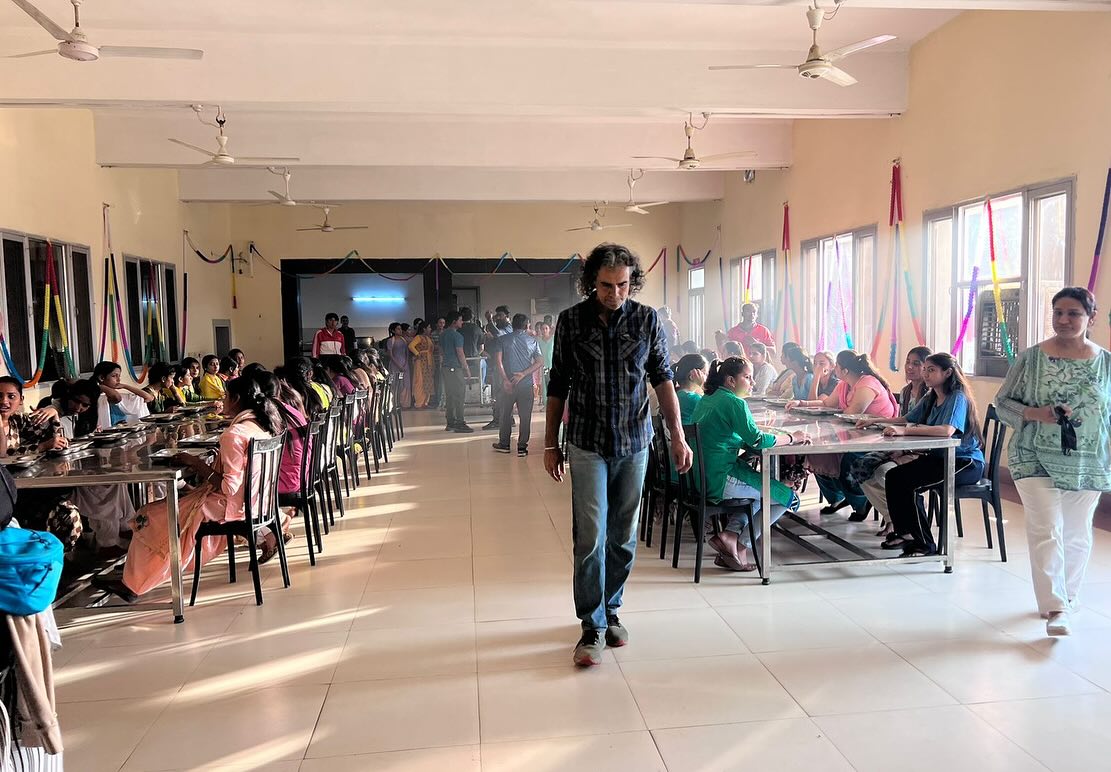 Imtiaz Ali during a shooting
Imtiaz Ali during a shooting
One such giving back is a project titled “Healers”. This is about Sufi saints and their message of love through humanity. It is teamwork between him and master musician A R Rahman, his co-partner in music in most of his films. The project is in the research process.
Bonding in Bollywood
The Hindi film industry is another name for love that exists through shared bonding between people of different faiths. Successful inter-religious marriages, employment, business, and economy go hand-in-hand here.
On allegations that “saffron has crept into the industry” Ali with his characteristic serene says, “It might be there. I am neither denying nor accepting it because I shall speak about only myself. I have never been steered into it. I was never pushed to make anything that reeked of a religious bias.”
ALSO READ: Life is not so fair to people with disability despite plethora of rights
Next, the filmmaker has three projects at hand - two films and a creative production under his production House, Widow Seat Production.
